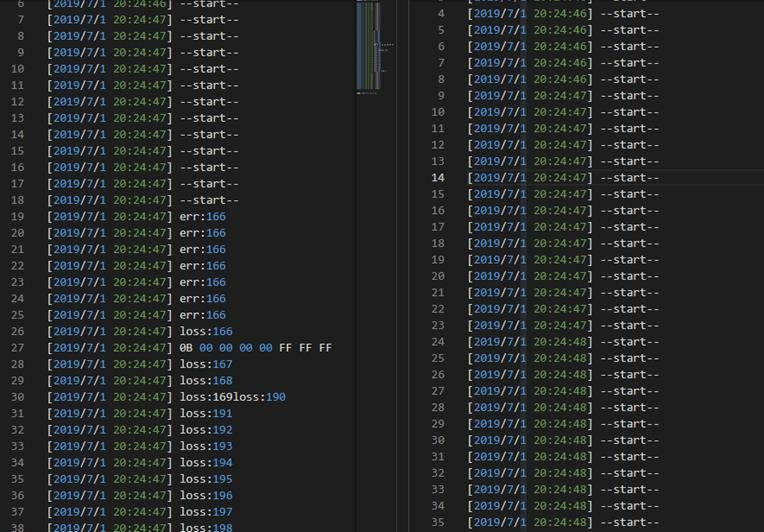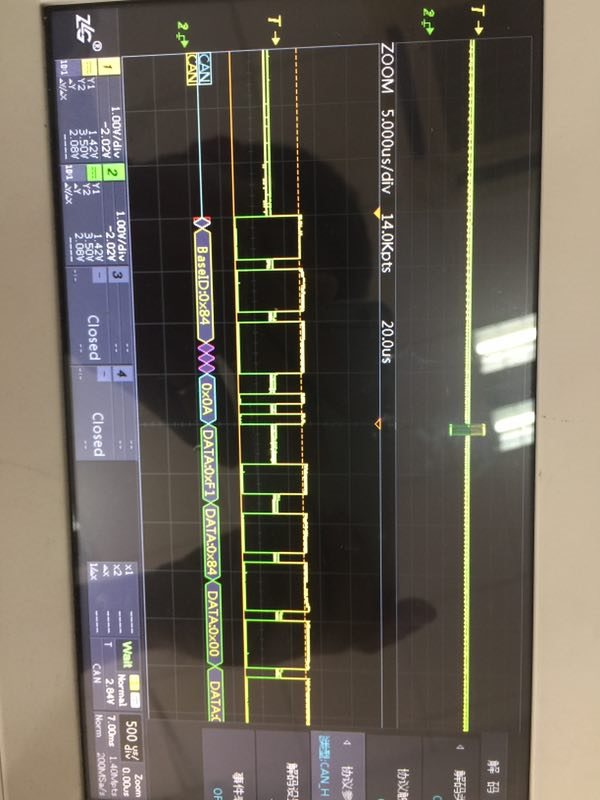Hi
TM4C129EKCPDT-> CAN Tx, also received by TM4C129EKCPDT. It's OK as below right picture.
TM4C129EKCPDT -> CAN Tx, receive it by another brand MCU. It's failed in sometimes as below left picture.
Where should we pay attention to troubleshoot? Frequency accuracy? Thanks a lot.
Here is waveform.



